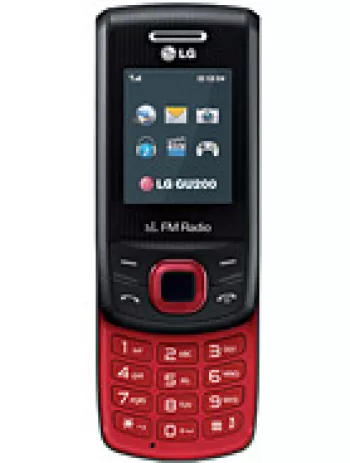
Introduction to LG GS500 Cookie Plus
The LG GS500 Cookie Plus, released in April 2010, was part of a wave of feature phones that aimed to maximize affordability while offering a taste of smartphone-like capabilities. With its distinctive design and basic media functionalities, it catered to users seeking straightforward communication and multimedia options.
Design and Build
The LG GS500 Cookie Plus features dimensions of 107 x 52.5 x 11.5 mm and weighs 92.5 grams. Its lightweight construction makes it portable and easy to handle. The phone's design incorporates a mini-SIM slot, which was standard at the time of its release. The colorful variety of the handset, available in Black, White Silver, Imperial Purple, Baby Pink, Wine Red, and Brown, added a personal touch to its appearance.
Display
The device sports a 3.0-inch TFT resistive touchscreen with a resolution of 240 x 400 pixels. The screen can display up to 256K colors, providing vibrant and clear visuals. Although the display-to-body ratio is 45.6%, which is modest by today's standards, it offers sufficient screen real estate for basic applications and navigation.
Performance and Memory
The LG GS500 operates as a feature phone with essential functionalities and does not run on contemporary smartphone operating systems. It includes 30MB of internal storage, which can be expanded via a dedicated microSDHC card slot, allowing users to store more photos, music, and other data. The phonebook can store up to 1000 contacts with a photocall feature, and it records 40 dialed, 40 received, and 40 missed calls.
Camera Capabilities
The device houses a single 3.15 MP main camera capable of capturing images and recording video at 320p@12fps. While it lacks advanced imaging features such as flash or secondary lenses, the camera is adequate for basic photography needs, making it suitable for casual use.
Audio and Connectivity
The LG GS500 comes equipped with a loudspeaker and a 3.5mm audio jack, allowing users to listen to music and make calls using standard headphones. It supports Bluetooth 2.1 with A2DP for wireless connectivity. However, Wi-Fi and GPS facilities are absent, which was typical for phones in its category. The device includes a stereo FM radio with RDS, adding variety to its entertainment options. USB 2.0 support provides basic connectivity for data transfer and charging.
Messaging and Applications
The device supports multiple messaging formats, including SMS, EMS, MMS, and email, facilitating various forms of communication. It also includes a WAP 2.0/xHTML, HTML browser for basic internet access, although internet speeds are limited to HSPA 3.6/0.384 Mbps. Java MIDP 2.1 support allows for downloading and using Java-based applications and games, expanding its functionality beyond built-in software.
Battery Life
The phone is powered by a removable Li-Ion 900 mAh battery, sufficient for up to 400 hours of standby time and around 3 hours and 40 minutes of talk time. The removable nature of the battery is a convenient feature for users who might want an easy replacement or backup options.
Network and Connectivity
The LG GS500 Cookie Plus supports GSM and HSPA network technologies. It is compatible with 2G bands (GSM 850/900/1800/1900) and a 3G band (HSDPA 2100), making it functional in various network areas. Though now discontinued, at its launch, it was viable for regions with 3G coverage.
Market Position and Legacy
Priced at around 90 EUR at its time of release, the LG GS500 Cookie Plus served as a budget-friendly option for those seeking basic telecommunication services without the complexity or cost associated with smartphones. While discontinued, its simplicity and ease of use are fondly remembered by many users who preferred its tactile interface and straightforward functionality.
Conclusion
In summary, the LG GS500 Cookie Plus embodies a transitional phase in mobile phone technology, bridging the gap between basic feature phones and fully-fledged smartphones. Its emphasis on essential communication, media, and customization reflects a period when users sought practical and affordable technology.
Key Features of LG GS500 Cookie Plus
- Supports GSM and HSPA technology, providing good coverage and connectivity.
- Compact and lightweight design with dimensions of 107 x 52.5 x 11.5 mm and weight of 92.5 g.
- 3.0-inch TFT resistive touchscreen display capable of displaying 256K colors.
- Expandable storage through a dedicated microSDHC card slot.
- 3.15 MP main camera for basic photography needs.
- Includes a 3.5mm headphone jack and loudspeaker for audio playback.
- Bluetooth 2.1 with A2DP for wireless connectivity.
- FM radio with RDS for listening to music on the go.
- Includes an accelerometer sensor, supporting various interactive applications.
- Removable Li-Ion 900 mAh battery offering a standby time of up to 400 hours.
- Available in a variety of colors including Black, White Silver, Imperial Purple, Baby Pink, Wine Red, and Brown.
Drawbacks of LG GS500 Cookie Plus
- No Wi-Fi connectivity, limiting internet access options
- Lack of GPS for location services
- Limited internal storage of 30MB, requiring reliance on microSDHC cards for additional space
- The resistive touchscreen is less responsive compared to capacitive screens
- No front selfie camera available
- Video recording capability is quite basic, limited to 320p resolution at 12fps
- Relatively low battery capacity (900 mAh) offering limited usage time
- Discontinued status means no longer supported or updated
- Only 3.6 Mbps HSPA speed, slower compared to more recent standards

View Also
More Phones
All Rights Reserved +14267 Phones © Mobilawy 2025

























